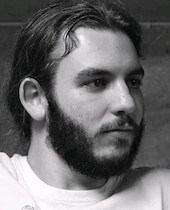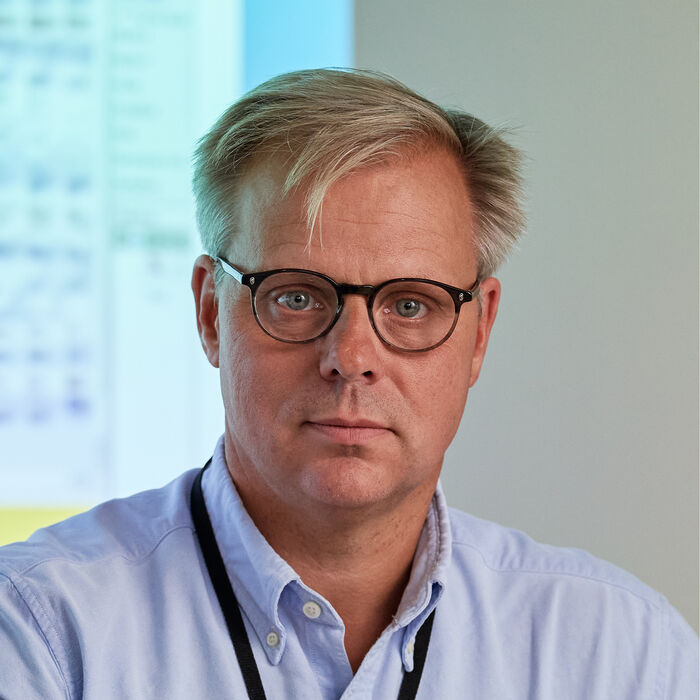Events - Page 13
C*-algebra seminar by Alexander Mang (Saarland University)
Doctoral candidate Jakob Schreiner at the Department of Mathematics, Faculty of Mathematics and Natural Sciences, is defending the thesis Patient Specific Computational Models of the Brain and Electroconvulsive Therapy for the degree of Philosophiae Doctor.
Doctoral candidate Elisa Cazzador at the Department of Mathematics, Faculty of Mathematics and Natural Sciences, is defending the thesis Topics in the geometry of spaces of symmetric tensors for the degree of Philosophiae Doctor.
Abstract: Because of their huge compressibility difference with their surrounding media, air bubbles in water have a special relationship with acoustic waves: they are sub-wavelength resonators. In this presentation, I will show that this characteristic has great implications for both the surrounding fluid, because of the steady streaming effect, but also for the acoustic waves.
This talk is part of the Mechanics Lunch Seminar series. Bring-your-own-lunch and lots of questions.
Doctoral candidate Andrea Raffo at the Department of Mathematics, Faculty of Mathematics and Natural Sciences, is defending the thesis Mathematical methods for geometry reconstruction and shape analysis for the degree of Philosophiae Doctor.
We introduce SMARTboost (boosting of symmetric smooth additive regression trees), a machine learning model capable of fitting complex functions in high dimensions, yet designed for good performance in small n and low signal-to-noise environments. SMARTboost inherits many of the qualities that have made boosted trees the most widely used machine learning tool for tabular data; it automatically adjusts model complexity, handles continuous and discrete features, can capture nonlinear functions in high dimensions without overfitting, performs variable selection, and can handle highly non-Gaussian features. The combination of smooth symmetric trees and of carefully designed Bayesian priors gives SMARTboost an edge (in comparison with a state-of-the-art tool like XGBoost) in most settings with continuous and mixed discrete-continuous features. Unlike other tree-based methods, it can also compute marginal effects.
Doctoral candidate Mihaela-Alexandra Puica at the Department of Mathematics, Faculty of Mathematics and Natural Sciences, is defending the thesis Advances in Wind Power Modeling: Merging Research and Market Experience for the degree of Philosophiae Doctor.
This talk is part of the Mechanics Lunch Seminar series. Bring-your-own-lunch and lots of questions.
Doctoral candidate Gard Olav Helle at the Department of Mathematics, Faculty of Mathematics and Natural Sciences, is defending the thesis Instanton Floer Homology and Binary Polyhedral Spaces for the degree of Philosophiae Doctor.
Abstract: This talk is about the non-integer (fractional) derivative, its mathematical formulation by Abel in 1823, and present-day applications in modeling power-law behavior. These applications are in acoustics of complex media like tissue and sediments as well as in rheology, turbulence, and dielectrics. It will build on my book “Waves with Power-Law Attenuation”, Springer, 2019.
The talk will be streamed online. Please contact "timokoch at uio.no" for the Zoom link. This talk is part of the Mechanics Lunch Seminar series. Bring-your-own-lunch and lots of questions.
C*-algebra seminar talk by Johannes Christensen (KU Leuven)
Abstract: Gravitational settling of a droplet in air onto a soft substrate is a ubiquitous event relevant to many natural processes and engineering applications. We study this phenomenon by developing a three-phase lubrication model of droplet settling onto a solid substrate coated by a thin, soft compressible layer of elastic material. By combining scaling analysis, analytical methods and numerical simulations we elucidate how the resulting droplet dynamics is affected by the soft layer. We discuss extensions to droplet settlings onto thin viscous liquid films and elastic sheets. Our results provide new insight into the coupled interactions between droplets and solids coated by a thin film of a soft material.
Talk can be followed online on Zoom as well as in person. Please contact "timokoch at uio.no" for the Zoom link. This talk is part of the Mechanics Lunch Seminar series. Bring-your-own-lunch and lots of questions.
Maintenance plays a crucial role in ships and especially in the vital electric propulsion system. Intelligent predictive maintenance idealistically aims at preventing system failures and minimizing needless repairs, i.e., predicting failure likelihood and time to failure while providing the crew explainable predictions and recommending the best action for timely intervention. This presentation will cover a relevant work in collaboration with Sensor Systems in BigInsight, particularly a paper published under https://doi.org/10.1109/TII.2022.3144177. The failure prediction approach is driven by event logs, which include warnings, alarms, and operational information that describe all the happenings onboard the ship. The failure prediction objective is turned into classification and regression tasks; however, the training data pose three challenges. The events are irregular textual messages. The training data samples are not labelled. The datasets are extremely imbalanced, due to sparse failure events and multiple failure modes. The problem is casted into a weakly supervised machine learning framework. In a multiple instance learning process, the ungiven data labels are learned recursively while fitting the model parameters using deterministic annealing. The overall approach was tested on real ship data, and it successively forecasted few propulsion failures with explainable causes.
Doctoral candidate Cédric Le Texier at the Department of Mathematics, Faculty of Mathematics and Natural Sciences, is defending the thesis Combinatorial Patchworking, Real Tropical Curves and Hyperbolic Varieties for the degree of Philosophiae Doctor.
Abstract: We investigate the simulation of a rising bubble and a stationary droplet interaction to gain a better understanding of the rising dynamics and the morphology changing of bubble-droplet aggregate. A detailed study is conducted on the interaction process under different-size bubbles with various combinations of spreading factors. The current simulation framework consists of the conservative phase-field Lattice Boltzmann equation (LBE) for interface tracking and the velocity-pressure LBE for hydrodynamics. We simulate the contact line dynamics to confirm the method's accuracy. We further investigate the morphology changing of two contact droplets under different combinations of spreading factors and depict the final morphologies in a diagram. The separated, partially engulfed and complete engulfed morphologies can be replicated by systematically altering the sign of the spreading factors. The rising bubble and droplet interaction is simulated based on different final morphologies by adding a body force. The results show that the aggregate with double emulsion morphology can avoid distortion and maintain a greater terminal velocity than the aggregate with partially engulfed morphology.
Talk is online on Zoom. Please contact "timokoch at uio.no" for the Zoom link. This talk is part of the Mechanics Lunch Seminar series. Bring-your-own-lunch and lots of questions.
Deep learning (DL) has had unprecedented success and is now entering scientific computing with full force. However, current DL methods typically suffer from instability, even when universal approximation properties guarantee the existence of stable neural networks (NNs). In this talk we will show that there are basic well-conditioned problems in scientific computing where NNs with great approximation qualities are proven to exist, however, there does not exist any algorithm, even randomised, that can train (or compute) such a NN to even 1-digit of accuracy with a probability greater than 1/2. These results provide basic foundations for Smale’s 18th problem ("What are the limits of AI?") and imply a potentially vast classification theory describing conditions under which (stable) NNs with a given accuracy can be computed by an algorithm. We begin this theory by initiating a unified theory for compressed sensing and DL, leading to sufficient conditions for the existence of algorithms that compute stable NNs in inverse problems. We introduce Fast Iterative REstarted NETworks (FIRENETs), which we prove and numerically check (via suitable stability tests) are stable. The reference for this talk is: https://arxiv.org/abs/2101.08286 (to appear in Proc. Natl. Acad. Sci. USA).
Abstract: The fungal kingdom is one of the most species-rich organismal groups, containing up to 6 million species worldwide with a large diversity of ecosystem functions. Multicellularity has evolved independently in fungi, and over time many different growth forms and structures have originated. I will present some basics on fungal growth and the formation of complex multicellular structures.
Online participation is possible too. Please contact "timokoch at uio.no" for the Zoom link. This talk is part of the Mechanics Lunch Seminar series. Bring-your-own-lunch and lots of questions.
Super-resolution is a hot topic in current day Machine Learning. The origin of the methodology dates back to applications in seismic imaging. I discuss the evolution from the early days and highlight some papers which have given new theoretical insights along the way. I illustrate the bridge between traditional convex optimization and current day convolutional neural nets. Along the way I show some examples where we have used this for current day applications in seismic imaging.






